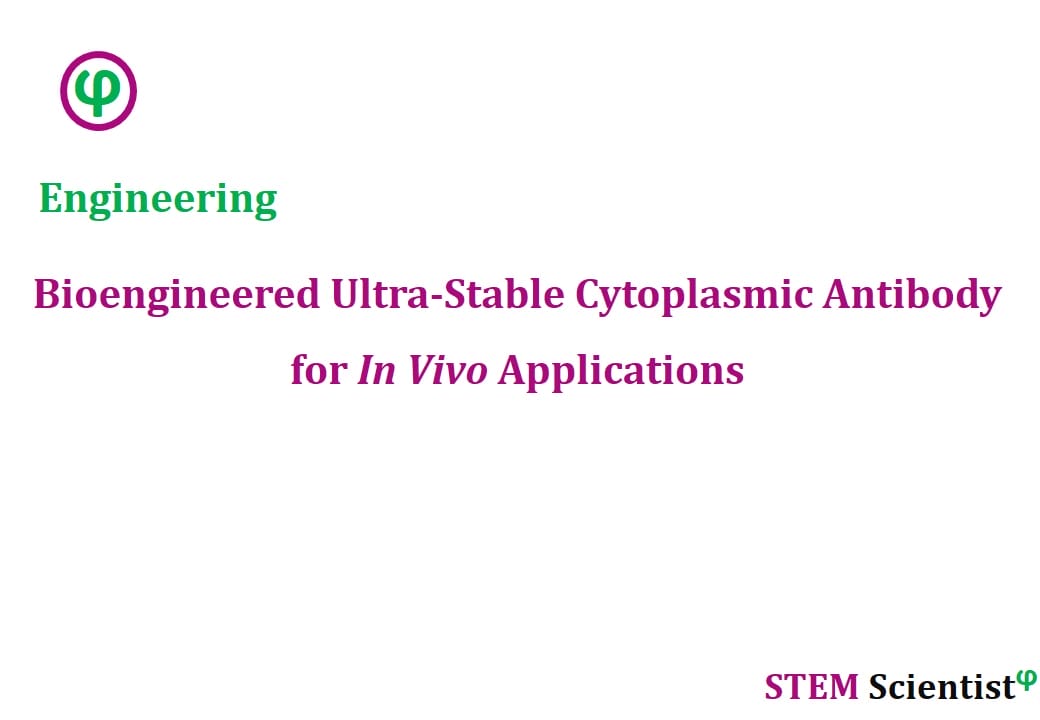
The following study was conducted by Scientists from Center for Brain Science, Institute of Physical and Chemical Research, Saitama; Nippon Veterinary and Life Science University, Tokyo; Center for Open Innovation, Jichi Medical University, Tochigi; The Institute of Medical Science, The University of Tokyo; Tohoku University; Faculty of Science, Toho University, Tokyo, Japan; Shanghai Tech University, Shanghai, China. Study is published in Nature Communications Journal as detailed below.
Nature Communications (2020); Volume 11, Article number: 336
An Ultra-Stable Cytoplasmic Antibody Engineered for In Vivo Applications
Abstract
Targeting cytoplasmic protein–protein interactions with antibodies remains technically challenging, since antibodies expressed in the cytosol frequently form insoluble aggregates. Existing engineering methods are based on the notion that the estimated net charge at pH 7.4 affects stability; as such, they are unable to overcome this problem. Herein, we report a versatile method for engineering an ultra-stable cytoplasmic antibody (STAND), with a strong estimated net negative charge at pH 6.6, by fusing peptide tags with a highly negative charge and a low isoelectric point. Without the need for complicated amino acid substitutions, we convert aggregation-prone antibodies to STANDs that are useful for inhibiting in vivo transmitter release, modulating animal behaviour, and inhibiting in vivo cancer proliferation driven by mutated Kras—long recognised as an “undruggable” oncogenic protein. The STAND method shows promise for targeting endogenous cytoplasmic proteins in basic biology and for developing future disease treatments.
Source:
Nature Communications
URL: https://www.nature.com/articles/s41467-019-13654-9
Citation:
Kabayama, H., Takeuchi, M., Tokushige, N. et al. An ultra-stable cytoplasmic antibody engineered for in vivo applications. Nat Commun 11, 336 (2020). https://doi.org/10.1038/s41467-019-13654-9.


